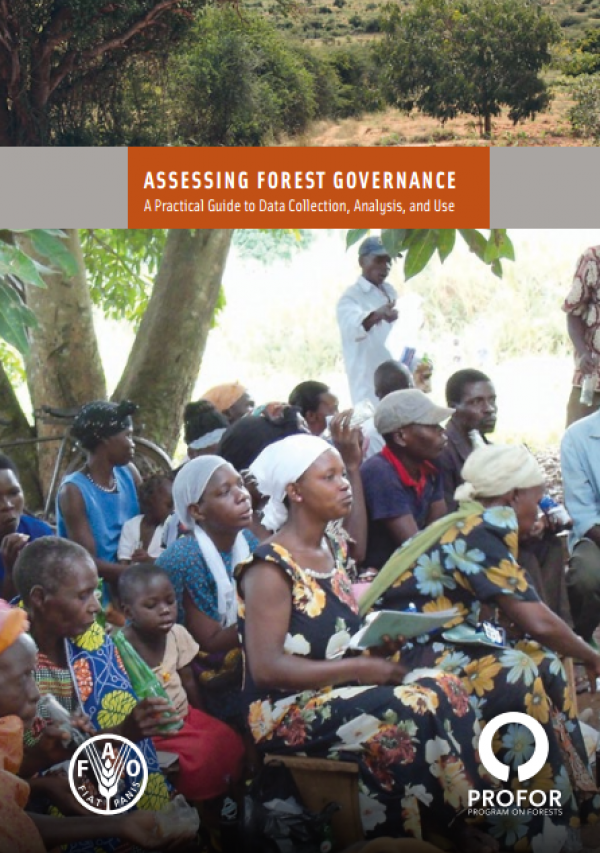New guide to good practices in forest governance data collection

REDD+ practitioners now have a new guide to good practices in forest governance data collection. The new publication, Assessing Forest Governance: A Practical Guide to Data Collection, Analysis and Use, has been released by FAO – through the UN-REDD Programme – and the Programme on Forests (PROFOR), and in collaboration with the European Forest Institute, GIZ, FERN, Forest Trends, Madera Verde and the Center for People and Forests.
Drawing on the expertise of these organizations, the guide covers planning, data collection, analysis and dissemination of forest governance date. It also contains five case studies of forest governance assessments, including the Indonesia Participatory Governance Assessment for REDD+. It also offers a collection of links and citations to tools and methods useful in governance assessment.
The practice of forest governance assessment is increasing. Governments, civil society organizations, development partners, academics and coalitions of stakeholders have all performed assessments in recent years – not only to prepare for REDD+, but also to watch for developing problems, diagnose the needs for reform, monitor the progress of programs and evaluate impacts.
In 2012, an expert meeting at FAO headquarters in Rome recommended the creation of a guide to good practices in the area of forest governance and data collection. In response, FAO and PROFOR oversaw the production of this practical manual. The guide can be used as a start-to-finish road map for forest governance data collection, or it can be used selectively to get advice on specific aspects of assessments, such as how to make a budget or how to create a dissemination strategy.
The guide is available in English and will soon be available in Spanish and French. Training workshops and pilot applications of the guide are being planned. Readers can download the English version of the guide from the UN-REDD Workspace: bit.ly/1qwsAZQ.
- For further information, please contact kristin.devalue@fao.org.

Facebook comments